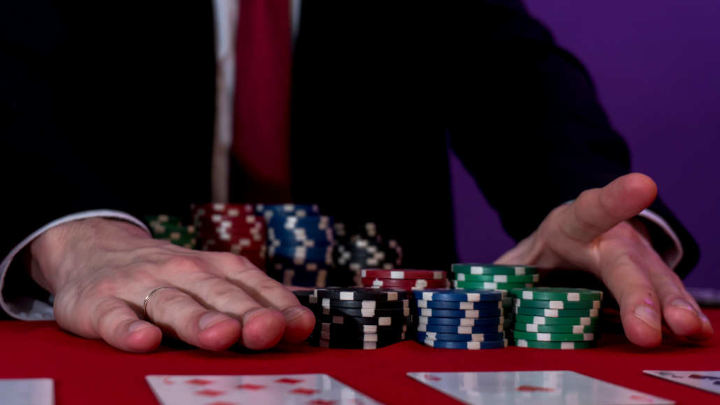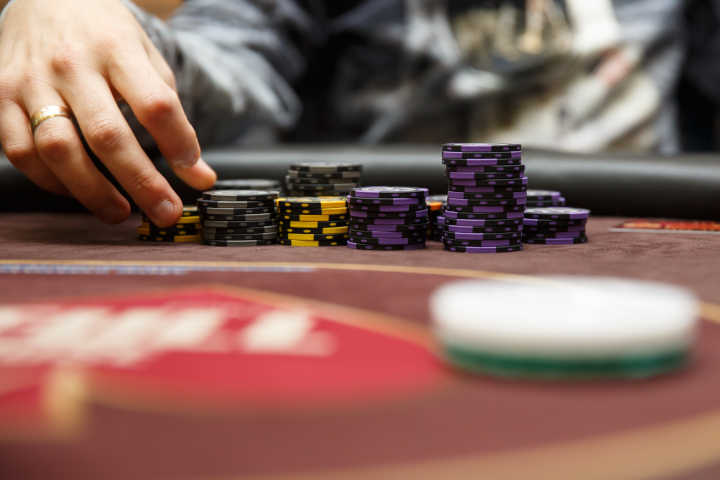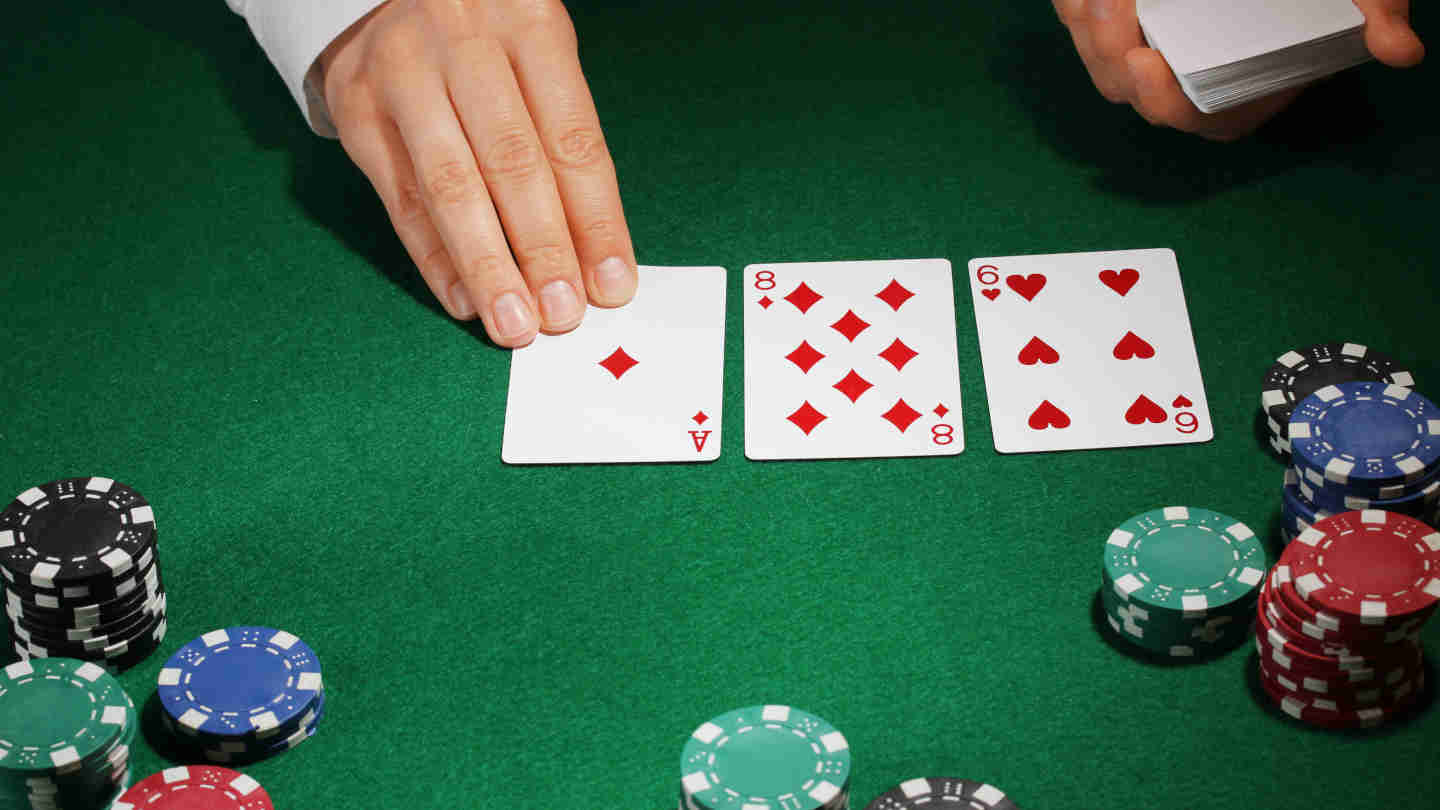Top 10 Poker Strategy Tips for Beginners – Learn How to Win at Poker

11 minutes
Poker is an incredibly fun game, and I remember vividly how hooked I was to it when I first learned how to play. But, as much as I loved it, the fact is, I simply sucked at it!
Only after years of playing like a complete fish did I pick up some actual poker strategy and start playing a winning game, but thankfully you don’t have to wait that long.
Back in the day, there weren’t as many good resources for poker beginners. Today, the internet is loaded with great content in every form you can imagine.
The thing that can be hard to do these days is deciding where to start and what skills you want to pick up when just starting out in poker.
For that reason, I have compiled a list of the top poker strategy tips that I believe every new player should learn before they get their feet too wet.
These tips are quite basic, and I highly recommend expanding on each of them by finding more coaching materials on particular topics.
You won’t become a great poker player from reading these tips, but you may be able to set yourself on the right course to succeed down the line. Let’s get started!
1. You Are Better Than No One
If you have only picked up the game and maybe learned a few very basic tricks, do not assume yourself to be better than anyone else at the table.
Over the years, I have seen so many cases of complete beginners talking a big game and acting as if they know what they are doing. At the same time, everyone else at the table could spot their lack of fundamental understanding of poker from miles away.
If you are not ready to admit that most, if not all, players at the table are better than you early on in your career, poker is probably not the right game for you.
As much as people may talk about natural talents and intuition, poker is a game that is learned by studying and playing for hours on end.
Any other approach will simply not yield the right results.
Early on, I suggest spending more time watching videos and reading articles than playing. Get involved in real games as often as you can, too, but try to stick to lower stakes.
Take it slowly and try to watch what other players are doing. When you see something interesting, ask them about it or try to find the answers as to why on the internet.
I am definitely not saying you can’t become a great poker player, but if you only learned Texas Hold’em rules a month ago, chances are you are making mistakes left and right at this moment.
2. Your Bankroll Is Your Tool
Coders have their laptops, handymen their sledgehammers, and poker players have their bankrolls. As a poker player, money is your tool of the trade, and you are going to need it even to get involved and especially to win.
You may be thinking that you don’t need too much money because you don’t plan on losing, but that is completely beside the point.
Every poker player in the world goes on downswings, and depending on the game format you choose; these can be quite brutal and devastating at times.
You will need a significant bankroll compared to the stakes you are playing if you are to stand any chance of surviving the variance and not busting your bankroll before you actually learn how to win.
That brings us to the next poker strategy tip that you are really going to need to take to heart, regardless of what you may think now.
3. Embrace the Variance
Variance is part of poker, and there is absolutely no getting away from it. In fact, trying to get away from variance will usually get you playing worse and making less money in the long run, or even losing.
Poker is all about the long run and winning over a stretch of thousands of poker hands. During those thousands of hands, you are going to encounter some very good and some very bad patches.

This is simply due to the cards being distributed at random and how you have to play poker based on incomplete information.
Making the right play or decision does not always result in you winning the pot.
For that reason, you will need to understand and embrace the variance as a very natural part of the game that neither you nor anyone else can avoid.
You should learn about normal swings in the game you are playing and never start panicking when you lose a few buyins.
When you do go on a downswing, I recommend taking a little break from the game and doing some study sessions to try and plug some leaks while also regaining confidence.
4. Never Stop Studying
As a novice player, there are countless poker strategies and poker tips that you can adopt to make your game better, and most players do this early on.
A trap that many fall into is thinking that once you can beat a certain level of poker, you should no longer study. This is wrong for a number of reasons.
For one, poker is an evolving game, and everyone in the world is learning and getting better. Poker today and twenty years ago cannot be compared,
If you knew how to win at poker twenty years ago, it doesn’t mean you’d be a winner in today’s games. You need to constantly study and improve your game.
Secondly, you are going to want to get better so you can move up the stakes and beat tougher games where more money can potentially be made.
Your goal should always be to be a better poker player than you were yesterday and introduce new poker strategies into your game to make yourself unpredictable and dangerous to all your opponents.
5. Choose Your Game Format
You will notice that I have not yet mentioned a single poker tip that has to do with actually playing your cards. That’s because so much of being a winning poker player is not about how you play your cards at all.
In today’s poker ecosystem, there are countless different formats of poker, from cash games, tournaments, SNGs, Spin & Goes, and even different poker games such as PLO or Short Deck Hold’em.
If you want to have success in poker, you will need to pick one of these poker formats and learn all the poker strategies that can be applied in it as well as you can.
Trying to jump into different games and be an all-rounder is almost never a good idea. Strategies in different games differ so much that specializing in one type of game will always be more profitable.

The first choice is obvious, do you want to play online or live? The two are quite different, and they require different skillsets, bankrolls, and time commitments.
If you choose online poker, your options will be countless. In the live poker world, you will need to choose between tournaments and cash games.
I suggest doing some serious research into this before you pick one. Also, remember that if a game turns out not to be what you expected, you can always switch it up and try another poker format.
6. Mathematics Rules in Poker
I come back to the concept of “feel players” and “playing on intuition,” and I can tell you right now that this is not really a thing in poker.
The best poker players all understand the mathematics of the game very well. In recent times the addition of game theory (GTO) into the equation has made poker more about maths than ever before.
To be a winning poker player, you will at least need to learn how to count your outs, calculate your immediate and implied odds, consider reverse implied odds, and similar basic concepts.
If you want to graduate to higher stakes, you will need to learn about frequencies and balancing your ranges.
All of these things are mathematical concepts deep down.
If you have a disdain for mathematics, you should not try to become a poker player. This game is all about odds and numbers, and any good poker strategy revolves around basic mathematical concepts.
7. Position Is King
Just as mathematics is so important in poker, understanding position and being positionally aware at all times is also critical if you want to know how to win at poker.
Perhaps one of the biggest mistakes novice players make in their poker strategy is that they play too many hands out of the blinds and early positions, bleeding money with marginal hands.

If you are to ever evolve into a true winning player, you will need to understand poker positions in detail and how every play you make is impacted by your and your opponents’ positions.
Fortunately, learning the basics of playing your position is not too hard.
Even just understanding that you should open a wider range from the button than the UTG will get you places. However, being disciplined about it may be the really hard part for many.
8. Aggressive Is Always Better Than Passive
Sure, there are situations in poker when you should trap your opponents and make a passive play to make them keep betting into you, as well as situations when a call is better than a raise.
However, when I talk about aggression, I don’t mean just throwing chips out there like a maniac and hoping they come back your way.
Instead, I am referring to your general poker strategy and game plan, which should always be aggressive.
You should be taking the initiative in as many pots as you can. Professional poker players don’t limp into hands or call raises out of position. Instead, they raise first in and 3-bet in the small blind to make sure they are getting the best possible chance to win the hand.
If you want to know if a poker game is good, observe it for 15 minutes. If you see many players open calling before the flop and few opening it up, you should try to find a seat at that table.
9. Think in Terms of Ranges
While ranges may seem like an advanced poker concept, they are really not. Thinking in terms of ranges instead of particular hands is how poker should always have been played.
Fishy live players often try to guess your exact hand and say things like “I put you on Ace-King,” and this is just not the right way to play poker at all.
The truth is, you can almost never know your opponent’s exact cards.
However, you can certainly narrow their range down to a handful of hands by the river, sometimes even to one exact hand.
That said, you should be thinking about the range of hands your opponent can have from the moment they put the first chip into the pot, eliminating them one by one as the streets go by.
By the time bets are getting big, you should have a good idea of the potential hands your opponent can have.

It is at this point that understanding how your hand (as well as your perceived range) plays against their hand and what play is best to make with all these things considered.
Of course, you could watch hundreds of hours of coaching on range vs. range battles and still not be proficient at it. Still, I highly recommend trying to force yourself to think in terms of ranges as early in your poker career as possible.
10. Maintain Your Focus
The one thing that has taken down more poker players than I could count is the loss of focus and commitment to playing a good poker strategy.
Going on tilt mid-session and starting to play against all the poker tips you have ever heard will quickly decimate your bankroll and have you doubting if you were ever a winning player in the first place.
Your mental state when playing poker is extremely important. I recommend never starting a session without being completely and utterly committed to it.
It is going to take a lot of effort to always play your best game. The most you can do is try to do so as often as possible, be honest with yourself, and quit a session when you are not feeling it.
Quitting can often go against our most basic urges. But, in reality, it is often the best cure to a session going badly, especially if tilt and bad plays are contributing to your losses.
To understand how to win at poker in the long run, you will need to learn to completely embrace the variance and not allow the bad beats and coolers to change your poker strategy one last bit.
Plenty More to Learn
The ten poker tips I gave you here are just the tip of the iceberg. There are many more things you will need to learn before you know how to win at poker.
However, the concepts I introduced here should be enough to give you a very good head start if you are willing to spend the time needed to focus and learn about each of them.
The last thing I can say is to give yourself time as Rome wasn’t built in a day, and you are not going to become a poker crusher tomorrow, either.
Take your time, play and study at your own pace, and if the passion for the game is strong enough, you may one day become one of the top players out there.
- Poker Squeeze Play – Which Hands Make the Most Sense for Squeezing? - August 10, 2023
- How to Play Low Pocket Pairs in Texas Hold’em - July 29, 2023
- How to Make Deep Runs in MTTs More Often - July 22, 2023















